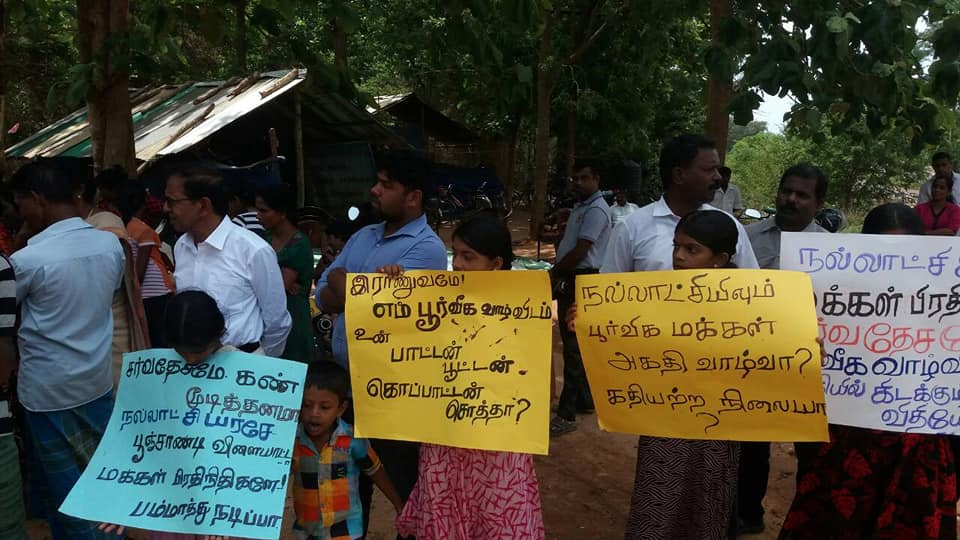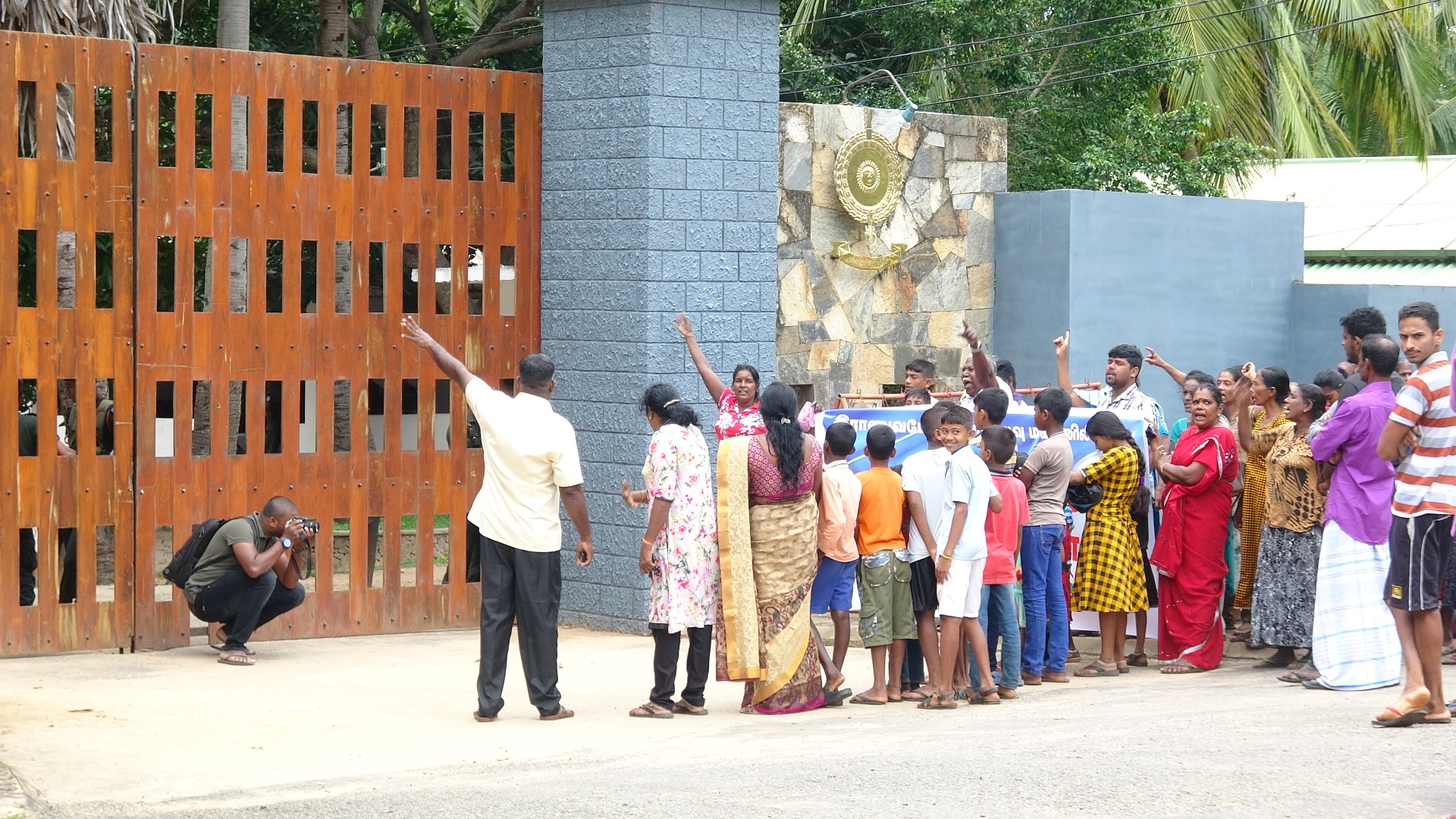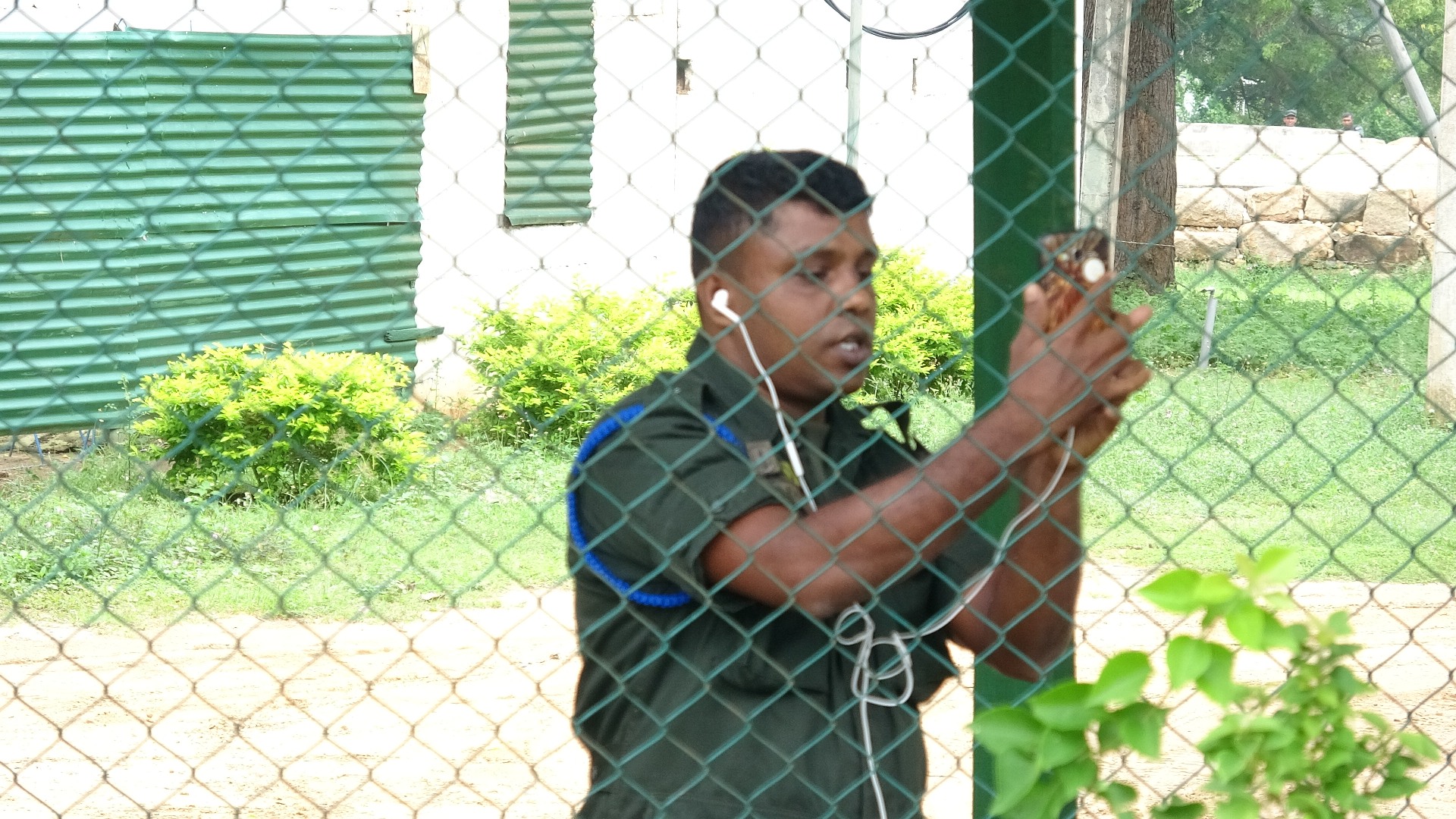
Keppapulavu families marking 500 days of protest in July 2018
Over 100 Tamil families from the Mullaitivu village of Keppapulavu are planning to occupy their lands tomorrow after a decade of delays and false promises from the Sri Lankan government.
The families made this decision after the government repeatedly failed to release the lands despite almost two years of protests, demanding the land to be returned today.
Although almost ten years have passed since the end of the armed conflict the Sri Lankan military continues to control and occupy vast swathes of land in the Tamil homeland, forcing families to remain displaced.
According the Jaffna based organisation, Adayaalam Center for Policy Research (ACPR), 30,000 acres remain under occupation in Mullaitivu.
Speaking to Reuters, Adayaalam's executive director, Kumaravadivel Guruparan said, "These people have waited for so long to get their land and homes back, and resume their lives."
"They feel they have no other option but to occupy their homes," he added.
Families attempt to enter army camp built on their occupied lands - October 2018
In October, the president, Maithripala Sirisena promised to ensure all occupied land in the North-East would be released by December 31, 2018.
Following this unfulfilled deadline, families attempted to enter the army camp on their lands on January 1, however faced dozens of police officers halting the entry.
Police told protestors that army officials would not come out to speak with them, and instead called local government officials from the district and divisional secretariats to attempt to pacify the protestors.
After lengthy discussions, protestors said they would return to their protest spot outside the army camp until January 25, 2019, following which they would restart attempts to forcibly enter their land.
“Even if the army shoot us, we will take our land back,” one protest representative told the local government officials.
While army officials failed to speak with the protestors, several photographed and filmed them.
Keppapulavu families began their prolonged campaign for their homes in March 2017.
The campaign, which has seen widespread support among Tamils across the North-East and diaspora worldwide, has reached out to several international bodies, including the UN High Commissioner for Human Rights.
In a letter to the High Commissioner last October, families wrote:
"The lands of 104 families are still in the hands of Sri Lankan Security Forces."
"Our places of worship, homes, schools, play grounds, cemeteries and other buildings are in the hands of the Sri Lankan forces. We, including children and elderly continue our protest in extremely difficult environment under heavy rain in places in jungles. While we're struggling, our lands were being used by the Sri Lankan Forces and enjoy all the benefits."
“The rich community life in this village, woven around agriculture and fishing, and around cultural and religious practices, was destroyed by the war and after the war, by the occupation of the Army” said a press release by the People’s Alliance for Right to Land.
“They have kept vigil outside the entrance to their village, now an Army camp, braving intimidation, threats, sun, rain, dust, mosquitoes and constant illness. It is the longest running community-led continuous day and night protest for land in the country.”
The organisation went on to call on Sri Lanka’s president, “who is also the Minister of Defense and Commander-in-Chief of the Armed Forces, to immediately release all military occupied lands in the North and East”.
See the full text of the press release here.



